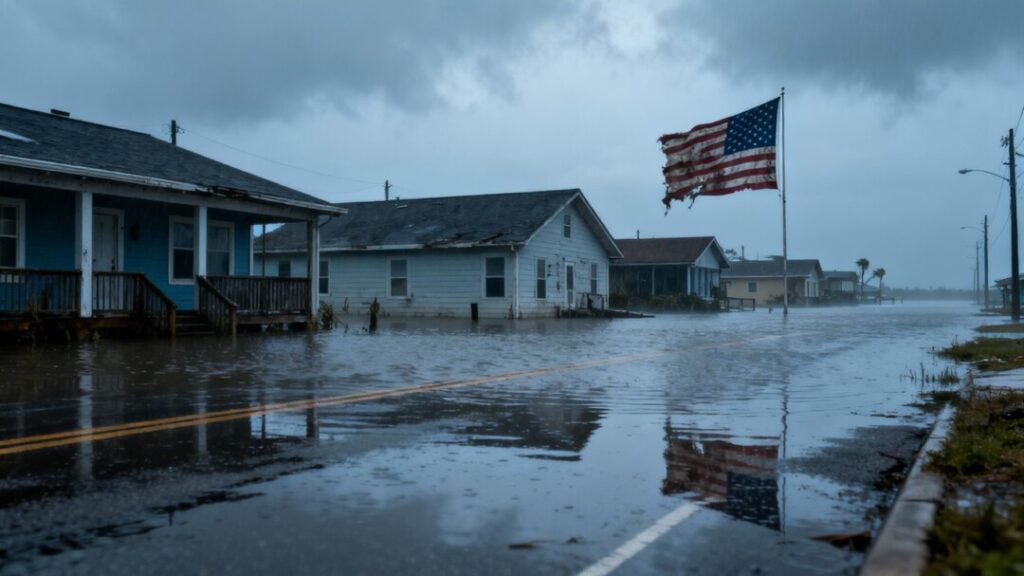A looming government shutdown poses a significant threat to Florida’s booming real estate sector, primarily due to the potential lapse of the National Flood Insurance Program (NFIP). With the NFIP set to expire on September 30 without congressional action, thousands of home sales across the Sunshine State could be disrupted, impacting both buyers and sellers in flood-prone areas.
Key Takeaways
- The National Flood Insurance Program (NFIP), crucial for nearly 1.8 million Florida policyholders, faces expiration on September 30.
- A lapse could halt new policy sales, disrupting home sales in areas requiring flood insurance.
- While historically renewed, current political dysfunction raises concerns about timely reauthorization.
- The private flood insurance market is significantly more expensive, potentially increasing costs for homeowners.
- Other federal programs impacting real estate, such as those from the IRS and USDA, may also face disruptions.
The NFIP’s Critical Role in Florida
Florida, with its extensive coastline and low elevation, has more NFIP policyholders than any other state. The program is vital for securing mortgages in flood-prone regions, as lenders often mandate flood insurance. If the NFIP lapses, new policies cannot be issued, potentially derailing sales transactions at a critical time, especially during hurricane season. While existing policies remain in effect and claims will be paid until funds are depleted, the inability to secure new coverage is a major hurdle for closings.
Potential Market Disruptions
Industry insiders express concern that this year’s political climate could lead to a prolonged lapse, unlike previous instances where the NFIP was temporarily extended. A lapse could also cap the program’s borrowing authority, potentially delaying claim payments. For homeowners unable to secure NFIP coverage, the private market offers an alternative, but at a substantially higher cost. This could exacerbate affordability issues for many Floridians. The National Association of Realtors estimates that around 1,300 home sales nationwide could be disrupted daily if the NFIP lapses.
Broader Impacts of a Government Shutdown
Beyond flood insurance, a government shutdown could affect several other programs vital to the real estate industry. These include:
- Home Loans: While Fannie Mae and Freddie Mac generally continue operations, disruptions could occur in employment verification and tax transcript processing, particularly for federal employees.
- Rural Housing Programs: The USDA may halt the issuance of new direct and guaranteed home loans, and scheduled closings could be postponed.
- Internal Revenue Service (IRS): Taxpayer services, including issuing refunds and releasing liens, could be significantly curtailed.
- Environmental Protection Agency (EPA): Many regulatory programs and compliance activities may be impacted due to furloughed staff.
- Department of Housing and Urban Development (HUD): While some FHA operations may continue, others, like condo project approvals, could be suspended. Housing counseling agencies might face service reductions.
Despite these risks, many in the industry anticipate that Congress will eventually reach an agreement to reauthorize the NFIP due to its systemic importance to the housing market and the protection it offers lenders.
Sources
- Florida Faces Outsized Risk if Flood Insurance Lapses, The Real Deal.
- What to Know About a Government Shutdown, | Florida Realtors.


